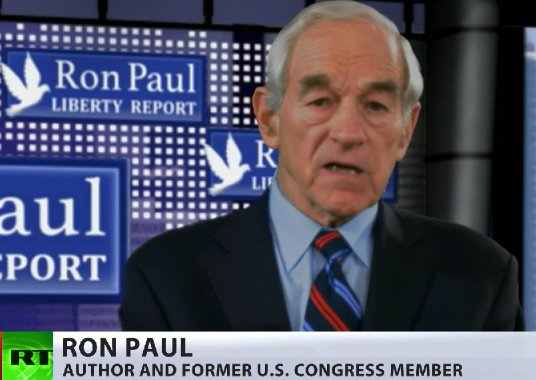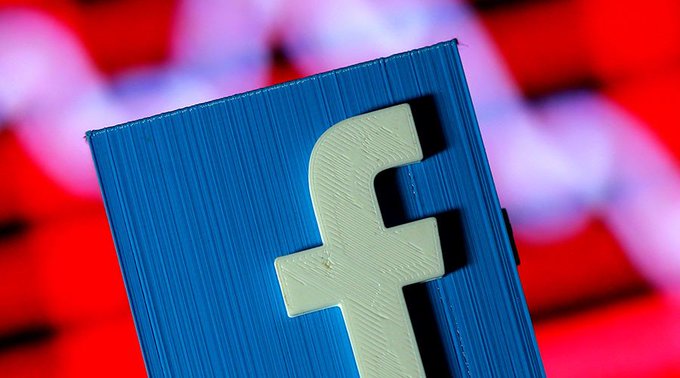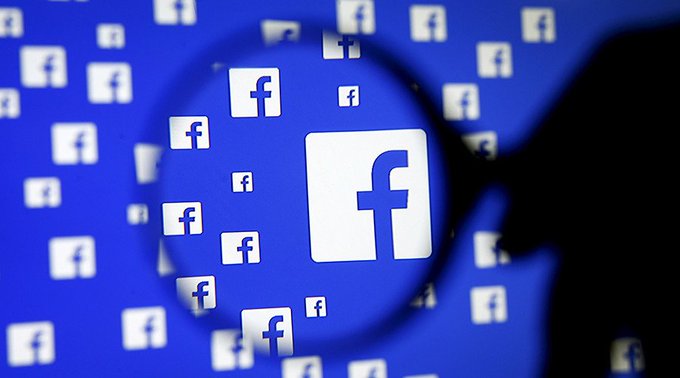Facebook’s 'anti-fake news' plan looks like effort to curb alternative media
Bryan MacDonald is an Irish journalist, who is based in Russia
There are serious concerns over a social media giant's plans to debunk spurious news stories. And many are puzzled about the real agenda at play.
You don’t need to worship at the altar of George Orwell to see where this is going. Under tremendous assault from the American establishment media over the proliferation of what they define as ’fake news’ on the platform, internet behemoth Facebook has finally caved in and agreed to regulate content. While, in principle, the concept sounds relatively noble, the manner in which it's proposed to implement it merits many questions.
Among them are the continuing dangers of American domination of the world wide web and the liberal bias of that country’s popular press. But most worrying is the uncharted territory we are entering. Because there has never been a media portal as dominant as Facebook. In the past, big broadcasters or newsagent chains might have enjoyed outsized influence, but Mark Zuckerbeg’s firm is an effective monopoly.
CIA meddled in ‘hundreds’ of elections: Ron Paul talks Russia-blaming, fake news and more on RTon.rt.com/7xyc
Whereas papers have always been curated by editors, their power was limited by the sheer number of competitors in every national market. And the more different they were, the better for society in general. However, there is only one Facebook, and it’s power, in this regard, is extraordinary.
Of course, another big problem here is that one person’s “fake news” could be another’s truth. And that’s before we mention how some of the outlets pressuring Facebook are often guilty of making up stories themselves.
Strange Bedfellows
To filter content, Facebook has joined up with Poynter, an self-proclaimed “international fact-checking network,” which presents itself as a neutral body with great integrity. Yet, a cursory glance at its funding sources is enough to set alarm bells ringing. They include Pierre Omidyar, George Soros and Washington’s National Endowment for Democracy, a CIA soft-power cutout. As it happens, regular RT readers will remember these three as the primary foreign backers of Ukraine’s Maidan coup in 2014.
Thus, it’s clear that this project could easily wind up as some sort of “ministry of truth” with only organizations who adhere to liberal Washington’s official line permitted unfettered access to Facebook’s primary news feeds. And this is very dangerous.
Facebook up to the facts: Social network, third party fact-checkers to sort out ‘fake news’on.rt.com/7xuw
Additionally, the fact that Poynter’s sponsors, which also include Bill Gates and Google, almost uniformly supported Hillary Clinton in the recent US election is very troubling. Because it’s another indication of how, having endured a series of electoral setbacks this year, the globalist elite is now effectively trying to block out dissenting voices.
That said, nobody is disputing whether “fake news” is a problem. It’s just hard to find agreement on its definition. For instance, very few in the west would define the Washington Post, Guardian, Daily Telegraph or New York Times as providers of fictional reportage, but viewed from Moscow it's often a different story.
Mainstream Muck
Only last month, WaPo accused 200 non-mainstream sites of acting on behalf of the Kremlin, in a story which has been definitively debunked by numerous credible sources. And, just last week, the NYT carried a front page story alleging that Vladimir Putin was using “kompromat” to destroy the reputations of his political opponents. For 'proof' they used the case of Vladimir Bukovsky, who was being investigated by British police over possession of child pornography.
German politicians want €500k fines if Facebook fails to remove fake news within 24hrs on.rt.com/7xyu
The papers readers were greeted with this soft-soap intro from the paper’s Andrew Higgins: “His indomitable will steeled by a dozen years in the Soviet gulag, decades of sparring with the K.G.B. and a bout of near fatal heart disease, Vladimir K. Bukovsky, a tireless opponent of Soviet leaders and President Vladimir V. Putin of Russia, is not a man easily put off his stride.” And to back up his yarn, Higgins made a series of unsubstantiated claims linking Russian state meddling to other similar schemes.
Yet, sadly for Higgins - and Bukovsky, of course - his hero admitted a few days later that he actually collected the child porn images himself, as "research."
Then there’s the Guardian, where its former Moscow correspondent Luke Harding has been alleging for years that Putin is the richest man in Europe, if not on earth. A statement that is frequently repeated in similar outlets, where his fortune - without any explanation - suddenly leaped jumped from $40 billion to $200 billion recently, according to the same Washington Post.
These journals of renown base their figures on a single, very shaky, source. And we can’t forget the Daily Telegraph, which appears to have given up on using professional journalists to cover Russia, and has produced some right porkies in recent times. Including outrageous stuff like Putin jetting to Switzerland, incognito, to oversee the birth of a love child and Moscow developing a Star Trek-esque teleportation device.
Are all these not examples of “fake news?” But given that they are establishment names in the western press, don’t expect Poynter to subject them to the same treatment as newer alternative outlets. And this is the problem with the entire exercise.
Credible or fake? Journalists clash in fiery RT debate on news sources in #Syria (VIDEO) on.rt.com/7xxx
Fragile Foundations
The list of signatories to the International Fact-Checking Network also sets alarm bells ringing. For they include some fairly dubious organizations. Take Politifact, for example. This group has been accused of having a left-wing bias and openly favoring Clinton during the US election campaign. As Breitbart observed: “When Trump said Clinton wants “open borders,” PolitiFact deemed his statement “mostly false” — despite the fact that Clinton admitted as much in a private, paid speech to a Brazilian bank on May 16, 2013. “My dream is a hemispheric common market, with open trade and open borders,” she said at the time.”
‘Intolerable & dangerous’: #Auschwitz Committee accuses #Facebook of turning blind eye to hate speech on.rt.com/7xwj
There is no doubt that blatantly made up, let alone poorly fact-checked, stories are poisoning political discourse. And Facebook is right to tackle the type of companies who produce twaddle such as “Hillary invented the Aids virus” or “Trump wants to distribute Mein Kampf to school kids" or whatever nonsense is being pushed today.
However, will it also censure “respected” mainstream outlets who allege that Putin has stolen $200 billion for himself or is planting child porn on dissidents?
Because unless they are also labelled with the “fake news” badge, this looks more like an exercise in the US liberal establishment trying to gain control of the distribution of news on social media, as they once did with newspapers and broadcasters.
Orwell might have called it a sort of “Minitrue.”
The statements, views and opinions expressed in this column are solely those of the author and do not necessarily represent those of RT.
https://www.rt.com/op-edge/370678-democracy-fake-news-facebook/







0 Comments:
Post a Comment
Subscribe to Post Comments [Atom]
<< Home